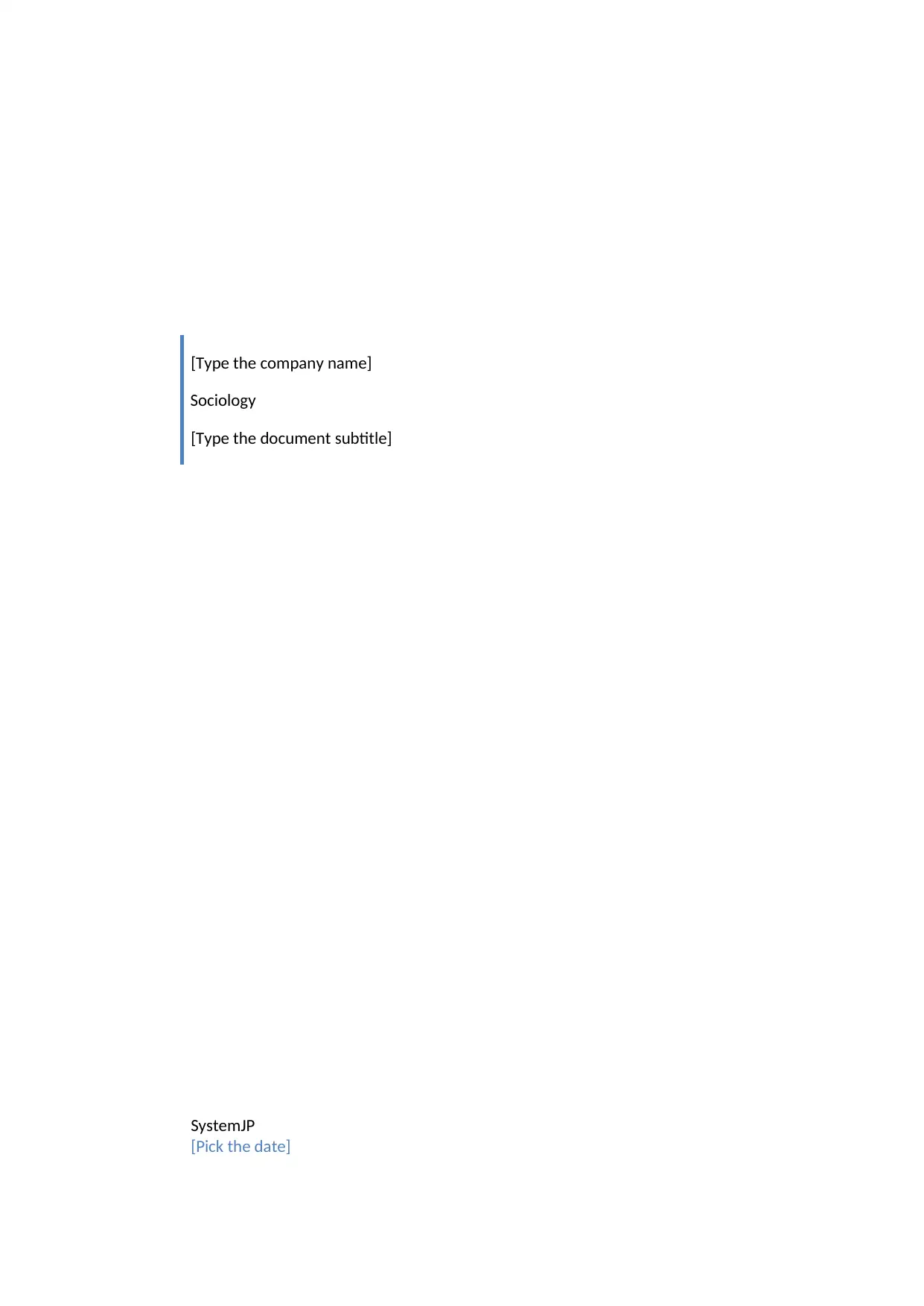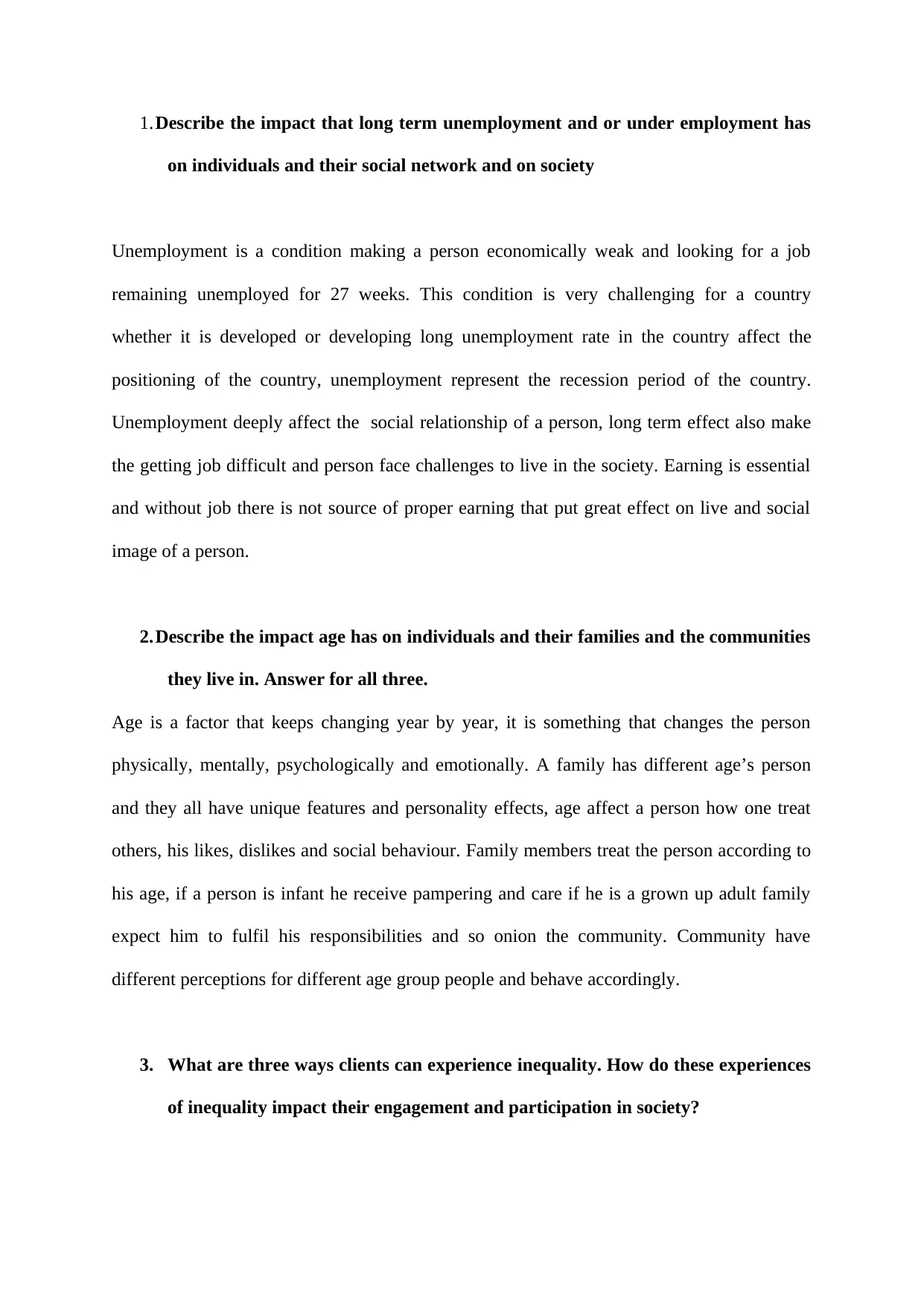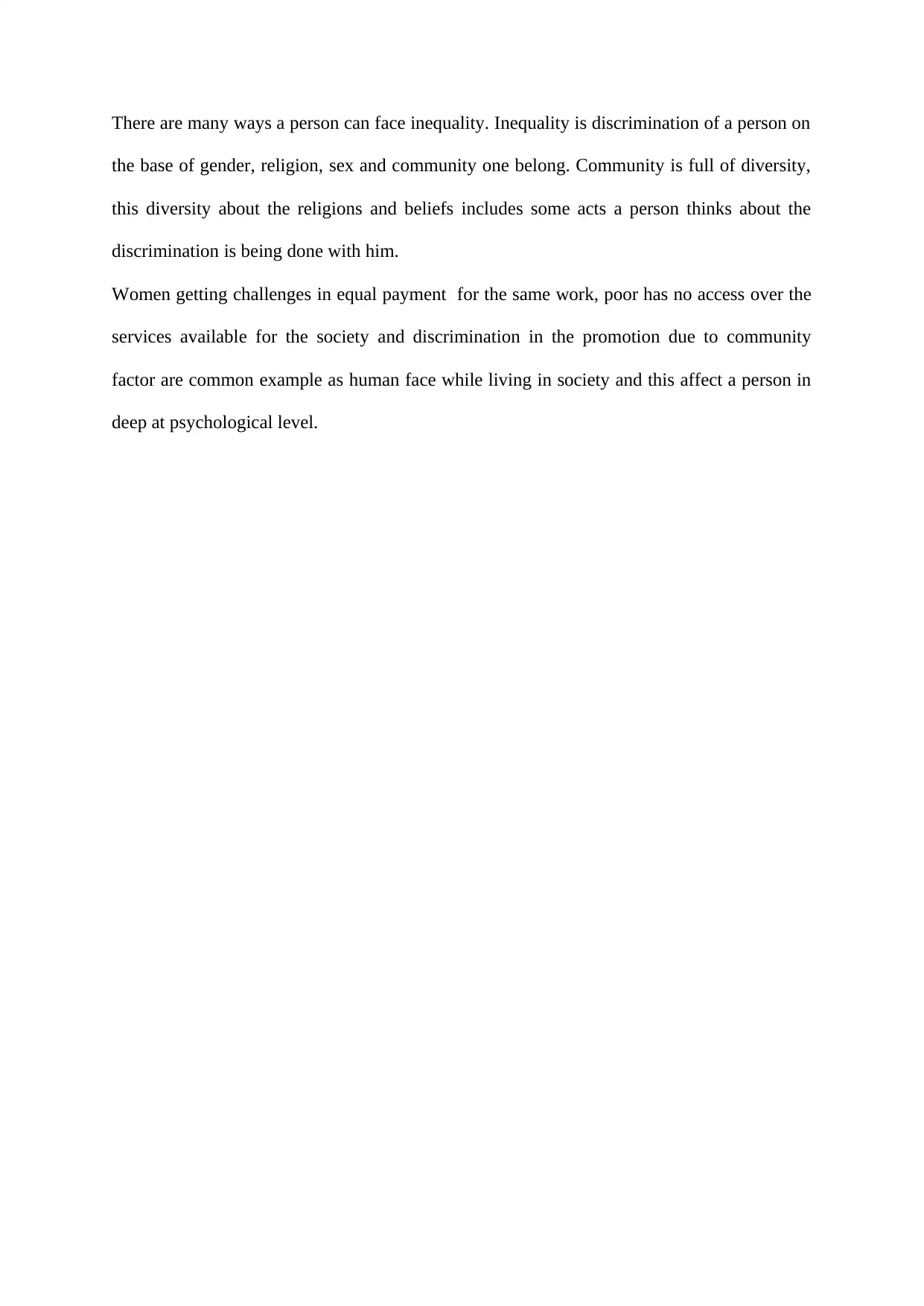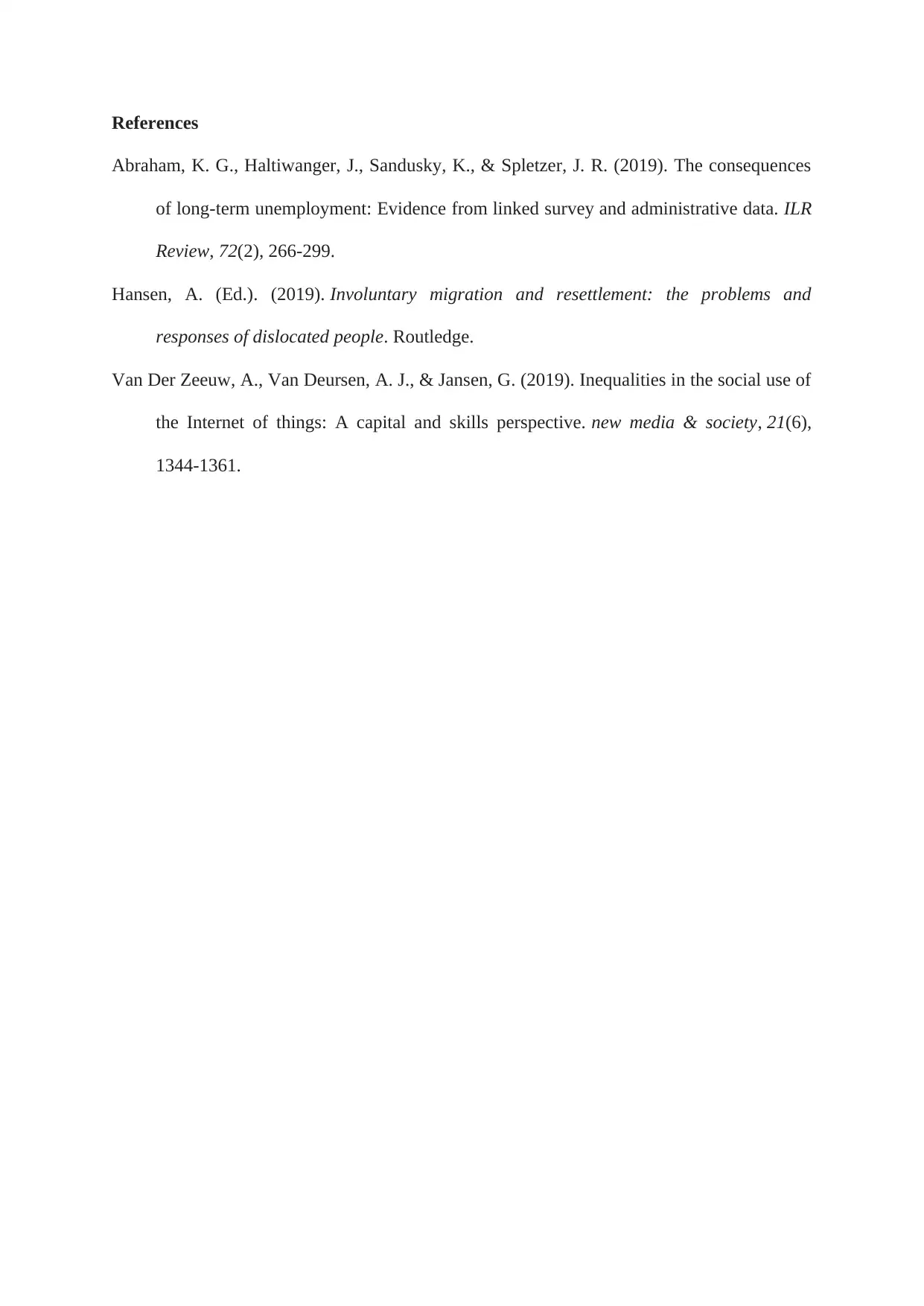Sociology: Long-Term Unemployment, Age, and Inequality Analysis
VerifiedAdded on 2022/09/14
|4
|543
|20
Essay
AI Summary
This assignment delves into the sociological impacts of long-term unemployment and underemployment on individuals, their social networks, and society. It examines how unemployment affects economic stability, social relationships, and an individual's self-perception. The assignment also explores the effects of age on individuals, families, and communities, highlighting the changing roles and perceptions associated with different age groups. Furthermore, it investigates various forms of inequality, such as gender, religion, and socioeconomic disparities, and how these inequalities influence individuals' experiences and their participation in society. The analysis considers the psychological and societal consequences of these factors, supported by relevant references to academic research.
1 out of 4











![[object Object]](/_next/static/media/star-bottom.7253800d.svg)